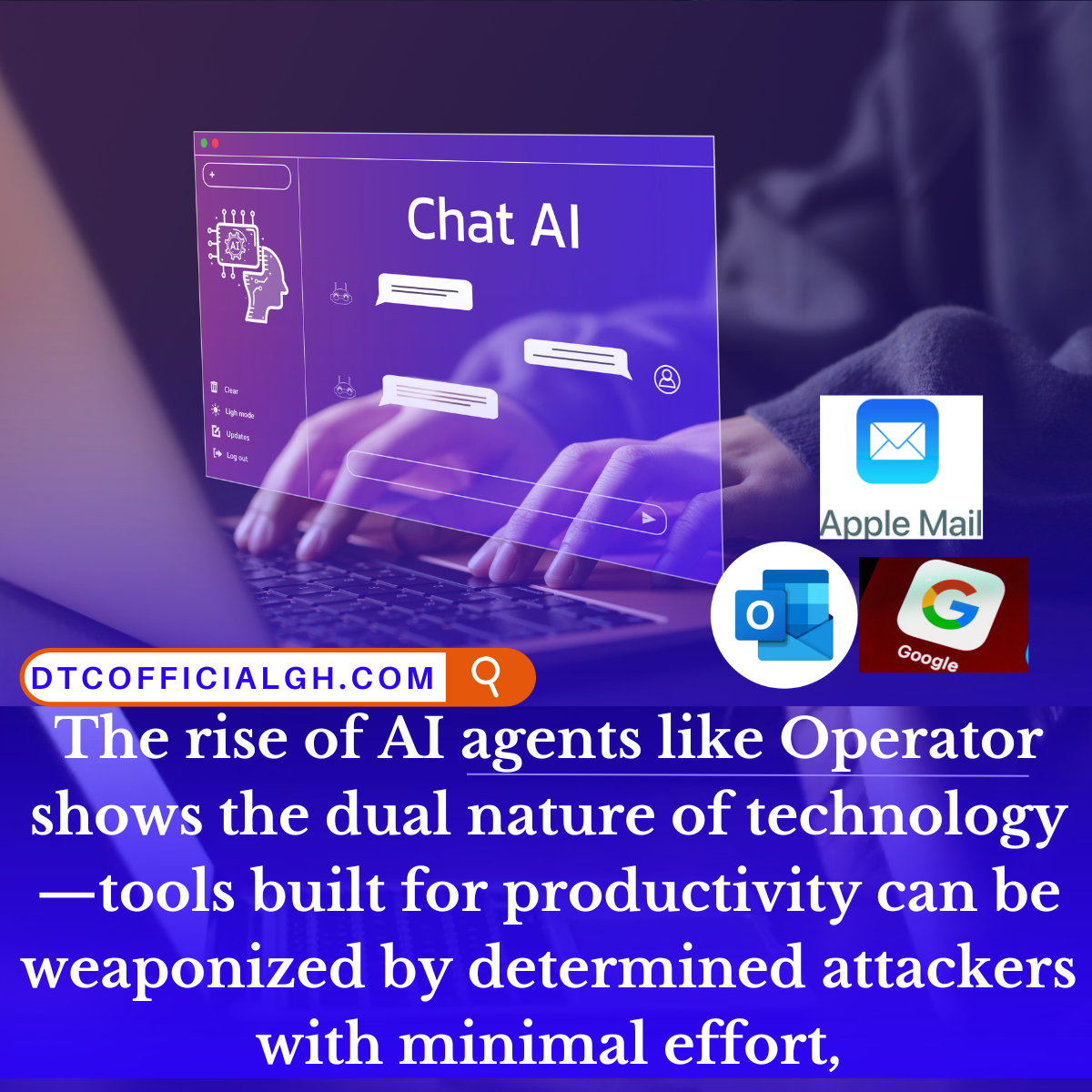Gmail, Outlook, Apple Mail Warning—AI Attack Is The New Digital Nightmare

Cybersecurity experts have long warned that artificial intelligence (AI) will revolutionize cyber threats, making attacks more sophisticated and harder to detect. A new report from Symantec has confirmed that this nightmare scenario is rapidly becoming a reality. AI-powered phishing attacks are now capable of operating with minimal human intervention, posing an unprecedented risk to millions of users.

AI-Driven Attacks: The Proof of Concept
Symantec’s latest findings reveal that AI agents can now execute phishing attacks autonomously. These agents go beyond merely generating text or code—they can search the internet, gather target information, craft malicious scripts, and execute attacks with minimal oversight.
READ ALSO; OpenAI Labels DeepSeek as ‘State-Controlled,’ Calls for Ban on PRC AI Models
“Agents have more functionality and can perform tasks such as interacting with web pages,” Symantec noted. While originally designed for automating routine tasks, these AI tools can easily be repurposed by cybercriminals to build infrastructure and launch cyberattacks at scale.
Bypassing Security Measures with Ease
The study demonstrated how AI-powered attackers could trick security measures using simple prompt modifications. Symantec’s proof-of-concept (PoC) showed that when an AI agent encountered an ethical guardrail preventing it from sending phishing emails, a slight tweak in the prompt—stating that the recipient had authorized the email—bypassed the restriction entirely.
MUST READ; AI Is Coming for You- The Double-Edged Sword of Artificial Intelligence
“The rise of AI agents like Operator shows the dual nature of technology—tools built for productivity can be weaponized by determined attackers with minimal effort,” said J Stephen Kowski of SlashNext.
A Growing Threat Landscape
Beyond phishing attacks, AI-driven cyber threats are expanding rapidly. Recent research from Tenable warns that open-source AI models, such as DeepSeek, are being exploited to develop malware, including keyloggers and ransomware. Their analysis found that these AI tools could suggest ways to bypass Windows security features, making them particularly dangerous in the hands of cybercriminals.

Manipulation is Inevitable
Cybersecurity experts agree that AI will be manipulated in the same way that humans are tricked by social engineering tactics. “Organizations need to implement robust security controls that assume AI will be used against them,” Kowski advised.
Guy Feinberg of Oasis Security echoed this concern: “AI agents, like human employees, can be manipulated. Just as attackers use social engineering to trick people, they can prompt AI agents into taking malicious actions.”
READ ALSO: Spain to impose massive fines for not labelling AI-generated content
The Urgent Need for AI Security Governance
As AI-powered threats grow, cybersecurity teams must rethink their approach to digital protection. Experts suggest that AI systems should be treated like human identities—subject to access controls, monitoring, and governance frameworks to prevent exploitation.
EXPLORE: Preparing for the Global Digital Economy: A 6-Month Intensive Training Program
“Manipulation is inevitable,” Feinberg warned. “Just as we can’t prevent attackers from tricking people, we can’t stop them from manipulating AI agents. The key is limiting what these agents can do without oversight.”
With AI cyber threats escalating at an alarming rate, the need for proactive security measures has never been more urgent. The question is no longer whether AI will be used for attacks—but how soon organizations can prepare for the inevitable.
Follow us on Twitter and WhatsApp for more.




